The Scottish mercenary hired to kill Pablo Escobar
- Published
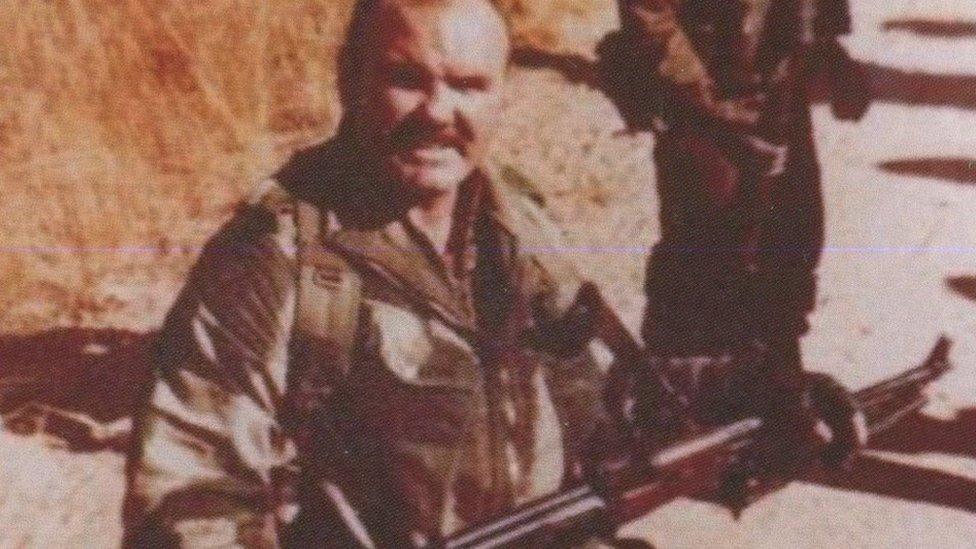
Peter McAleese was a mercenary in conflicts such as Rhodesia
Peter McAleese, the mercenary soldier who took part in a daring attempt to kill the Colombian drug baron Pablo Escobar, has died at the age of 81.
The Scot led a team of British mercenaries who, in 1989, travelled to the criminal empire of the world's most dangerous man in order to assassinate him.
Escobar was the leader of the Medellin drugs cartel in Colombia and one of the wealthiest villains in history.
He was the biggest manufacturer and distributor of cocaine in the world, responsible for as much as 80% of the global trade in the drug at that time.
Ex-SAS operative McAleese was recruited by a rival Colombian cartel to take out Escobar.
Three years ago, the documentary, "Killing Escobar", told the story of the ultimately unsuccessful mission - and the man behind it.


Filmmaker David Whitney said McAleese, who was born in Glasgow in 1942, was a "complex man" who had a lot of "inner turmoil". He was brought up in Riddrie - on the outskirts of Scotland's biggest city - and in the shadow of its infamous prison Barlinnie, where his father - a "very tough and violent man" - spent time.
In the film, McAleese said: "I was trained to kill by the Army but the fighting instinct came from Glasgow."
McAleese said he left home and joined the Army at 17 to find a way to channel his aggression. He enlisted in the Parachute Regiment and went on to become a member of the elite 22 Regiment SAS.
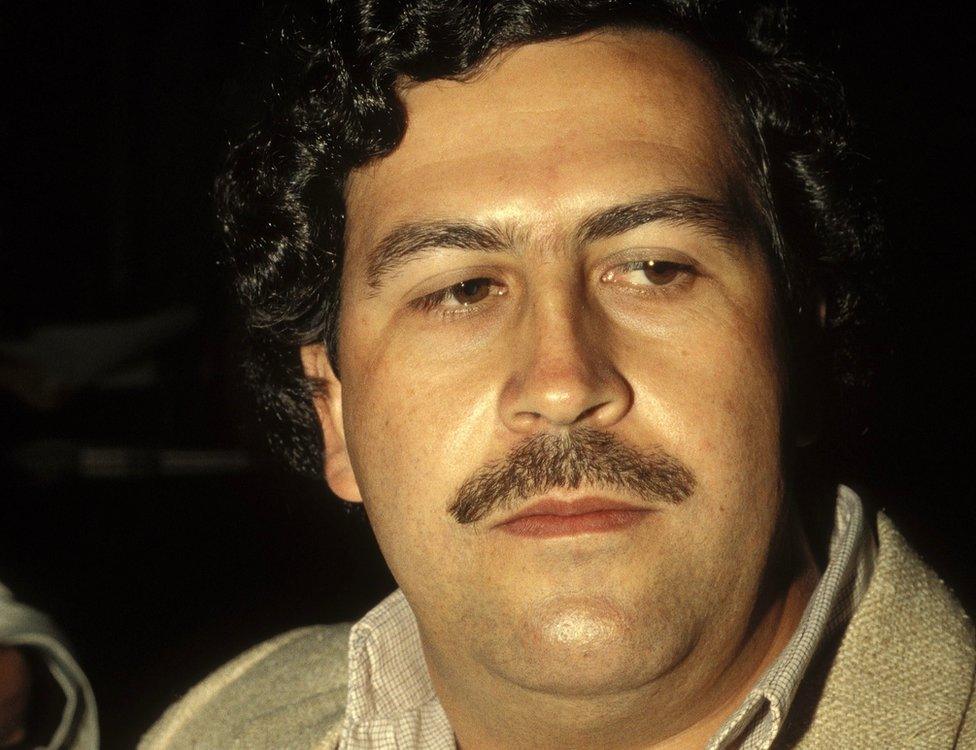
Pablo Escobar was one of the wealthiest and most dangerous criminal gang bosses in the world
He served in Borneo with the SAS, fighting in ferocious jungle warfare, before leaving the British Army in 1969, a decision he described as the worst thing he ever did.
McAleese drifted from job to job "not fitting in". He said he felt lost and his aggression became worse to the point where he was sent to prison for assaulting a girlfriend.
On his release, McAleese sought to recreate the buzz of his military career by finding action as a "mercenary" in the Angolan Civil War and later in Rhodesia (now Zimbabwe), as well as South Africa.
He met Dave Tomkins in Angola in 1976. Tomkins was not a regular soldier but he knew how to make deals and supply weapons. The unlikely pair became great friends and it was Tomkins who approached McAleese about the mission to kill Escobar.
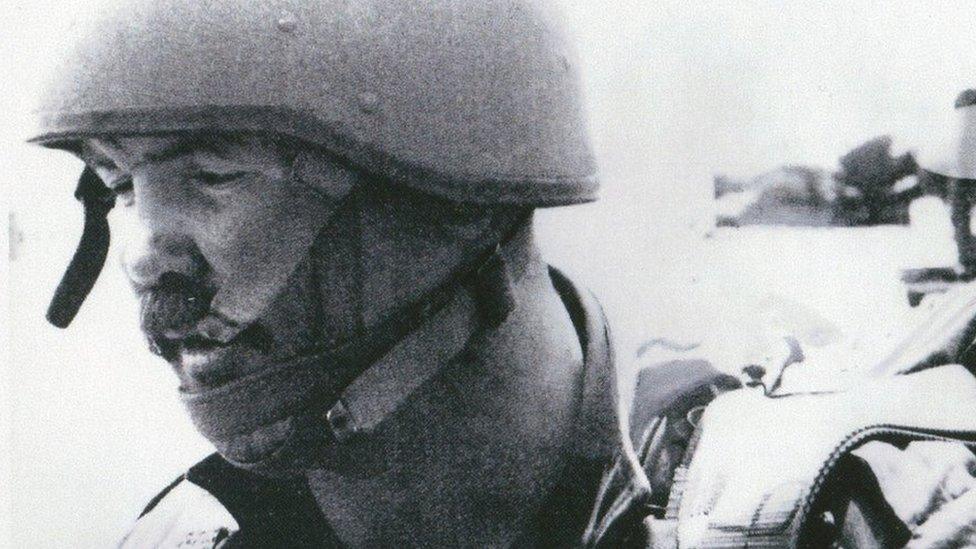
Peter in the South African defence force in the 1980s
Jorge Salcedo, a part of rival Colombian drug gang the Cali cartel, was co-ordinating the attack and he wanted Tomkins to recruit a team to carry it out. McAleese was the first person he asked.
"You don't get asked to assassinate Pablo Escobar unless you have got the right experience," said McAleese.
"I had no morals about killing him," he said. "I have never looked upon it as murder. I looked upon it as a target."
The Cali cartel was confident that Escobar could be killed when he went to his luxurious Hacienda Napoles ranch.
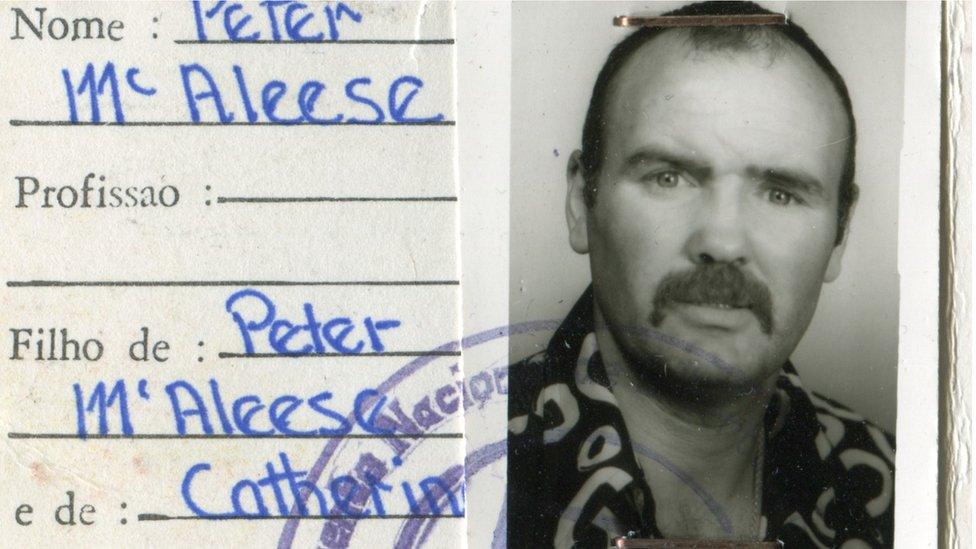
A young Peter McAleese's ID card during his mercenary days in Africa in the Seventies
The huge estate included a zoo full of exotic animals, a collection of old and luxury cars, a private airport and a bullring.
McAleese flew over the ranch for reconnaissance and agreed that it could be done. The mission was a goer.
Tomkins recruited a team of 12 mercenaries, people he had worked with before or who had been recommended.
They were helped through customs by Jorge Salcedo and the Cali cartel bankrolled their stay. Each of the men were on $5,000 a month plus expenses but Tomkins was getting a $1,000 a day.
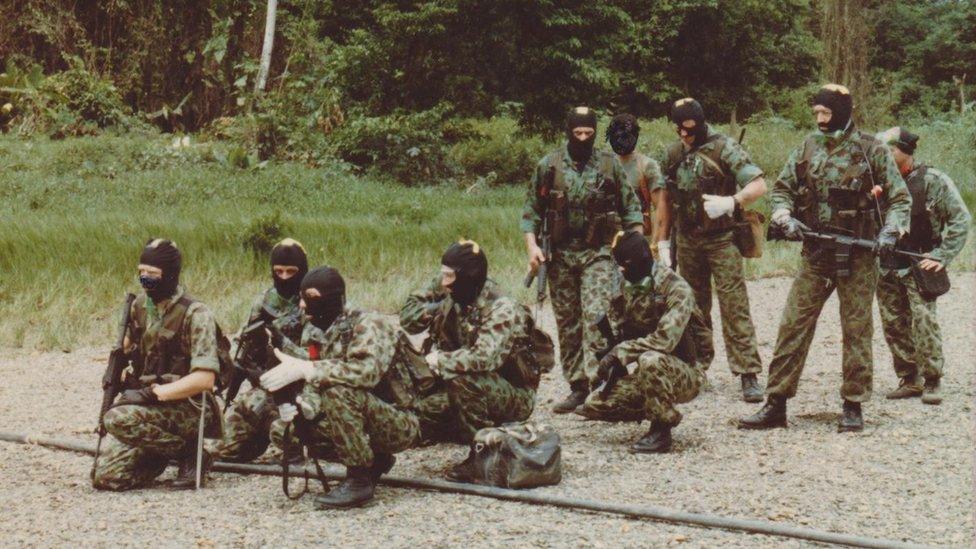
The mercenaries during training in Colombia for the assault
The 2021 documentary had access to video footage shot by Tomkins which includes the men playing with great wads of cash.
At first they stayed in the city of Cali but they were in danger of bringing too much attention to themselves so they moved out to a ranch in the countryside where they were provided with a huge cache of weapons.
"It was like Christmas," McAleese said. "Everything we needed weapons-wise was there."
The mercenaries trained hard for their mission but only Tomkins and McAleese knew who the target was.
Before the others were told, one of the group dropped out and was allowed to go home. He sold his story to the newspapers but did not give the names or details of the operation.
As the attack got closer the men moved their training into the jungle so they could practice with weapons and bombs without being heard.
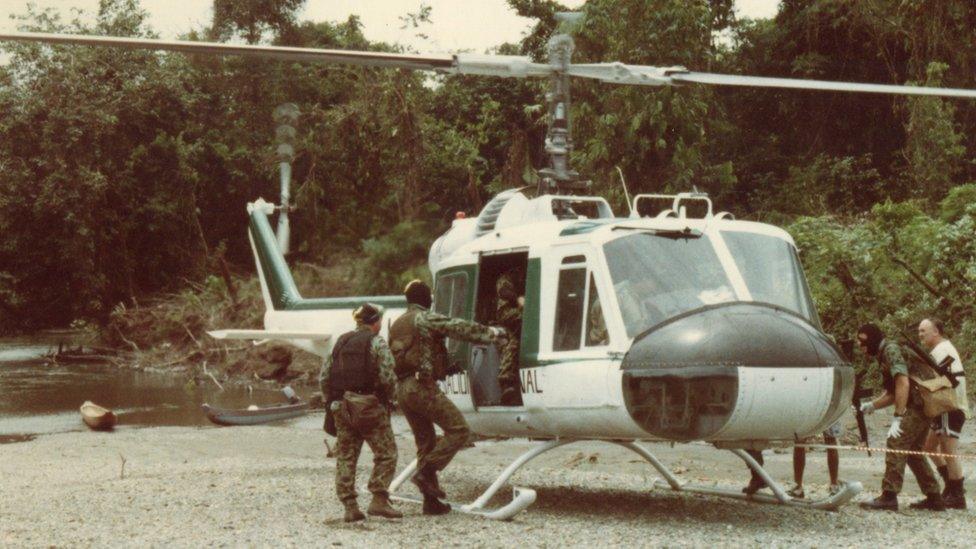
An original photo of the team training for the assault
The attack plan involved two helicopters flying into the compound at Hacienda Napoles as the mercenaries shot their way through Escobar's massive security operation to kill the drug lord, bringing back his head as a trophy.
When they heard from an informant that Escobar was at his ranch they set off for the target. But the attack was never to happen.
The helicopter carrying McAleese and Tomkins crashed as it flew low through the clouds over the Andes, killing the pilot.
Promises to God
The others survived but McAleese was too badly injured to get off the mountainside. He lay for three days in excruciating pain until he was rescued.
Escobar heard about the attack plan and sent his men on to the mountain to find them.
"If Pablo had caught me I would have had a long, drawn out, painful death," McAleese said.
Instead he escaped and tried to make good on the promises he had made to God while he was lying on the mountainside.
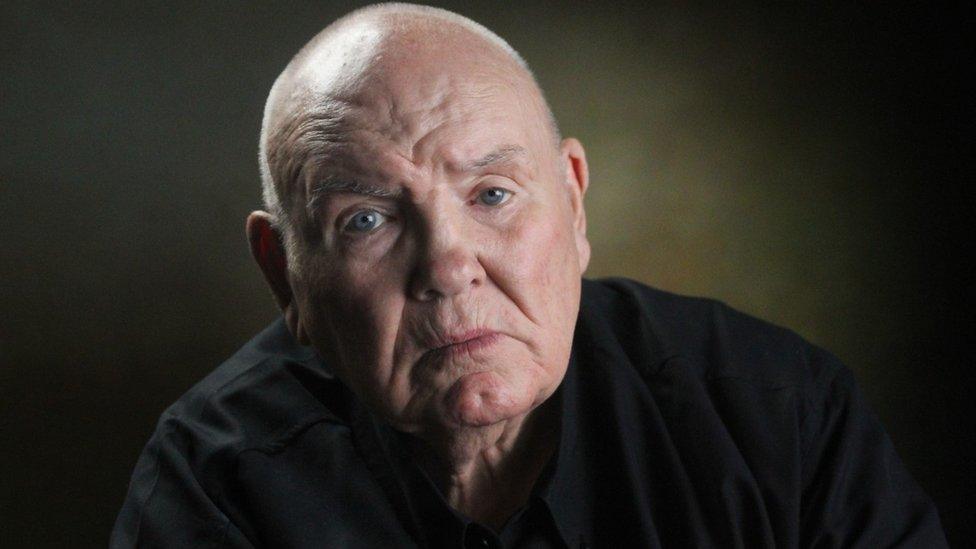
In 2021, Peter McAleese said he had many regrets but he has found peace
McAleese admitted he was a "dirty, lowdown, scumbag of a man" and he realised he had to change.
But it was not his actions in war zones he regretted, he said, but instead it was his failure as a husband and a father.
"I have an awful lot of regrets and none of them are in the soldiering side of my life," he said.
In the documentary three years ago, he said he had finally found peace at the age of 78.
Pablo Escobar, meanwhile, was shot dead in 1993 while on the run from the authorities.
This story was originally published in March 2021 and has been re-published on the death of Peter McAleese.